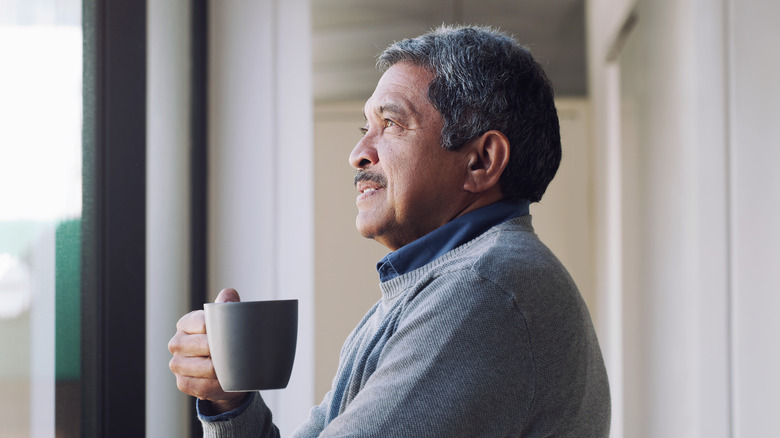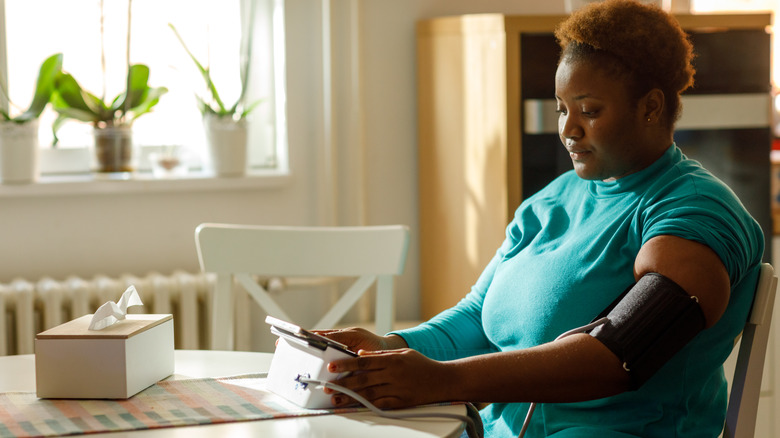When You Stop Drinking Coffee, This Is What Happens To Your Heart
If you enjoy a good cup of coffee, you're not alone. Drive Research found that 73% of people in the U.S. enjoy a daily cup of java while 93% report having the steamy beverage at least once per week. Clearly, Americans love their coffee.
When it comes to people's reasons for drinking coffee, the majority (83%) said they drink it because they enjoy the taste. Other reasons cited included it gives them energy (67%), it increases their productivity (43%), it provides health benefits (29%), and it suppresses their appetite (20%).
While the survey showed that a fairly large number of people believe that their morning brew helps keep them in good health, it may not necessarily be so good for your heart, especially if you have certain health conditions like heart problems or high blood pressure. If you stop drinking coffee or reduce the amount you are consuming, this could make things easier on your cardiovascular system.
How coffee affects your heart
Advent Health explains that when you drink coffee, the caffeine in it enters your bloodstream through your stomach and small intestine. Once it enters your body, it begins to stimulate your nervous system. Receptors in your heart cells are stimulated as well, causing your heart to beat faster. Your blood flow speeds up too. They note that these effects take about six hours to wear off.
UC Davis Health writes that healthy people tolerate these effects well, but for some people, especially those with heart problems or high blood pressure, the caffeine found in coffee can be a problem. It can lead to heart palpitations or extra heartbeats. It can also cause atrial fibrillation and rapid heartbeat. According to Mayo Clinic, some people who drink caffeinated beverages regularly also tend to have higher average blood pressure. If blood pressure is too high, it can force the heart to work harder, damaging it over time and leading to heart failure. High blood pressure can additionally contribute to coronary artery disease since it causes the arteries that supply the heart to become damaged and narrowed (per Mayo Clinic).
What happens when you quit drinking coffee
If you're in good health, you may simply want to cut back on your consumption if the caffeine in your coffee is leaving you feeling jittery or you're experiencing heart palpitations. MercyHealth notes that as long as you aren't exceeding the suggested amount, coffee can have certain benefits for your health due to the phytochemicals it contains that reduce inflammation. They state that drinking more than four cups of coffee per day will raise your heart rate and blood pressure and increase your risk for heart attack or stroke.
Advent Health advises that if you are going to stop drinking coffee, it may be wise to gradually reduce the amount you are drinking over several days in order to avoid withdrawal symptoms like brain fog and headaches. They suggest switching out some of your coffee for decaf and trying caffeine-free herbal teas. Once you have weaned yourself off of coffee, your caffeine-related symptoms like increased heart rate and raised blood pressure should be alleviated.



